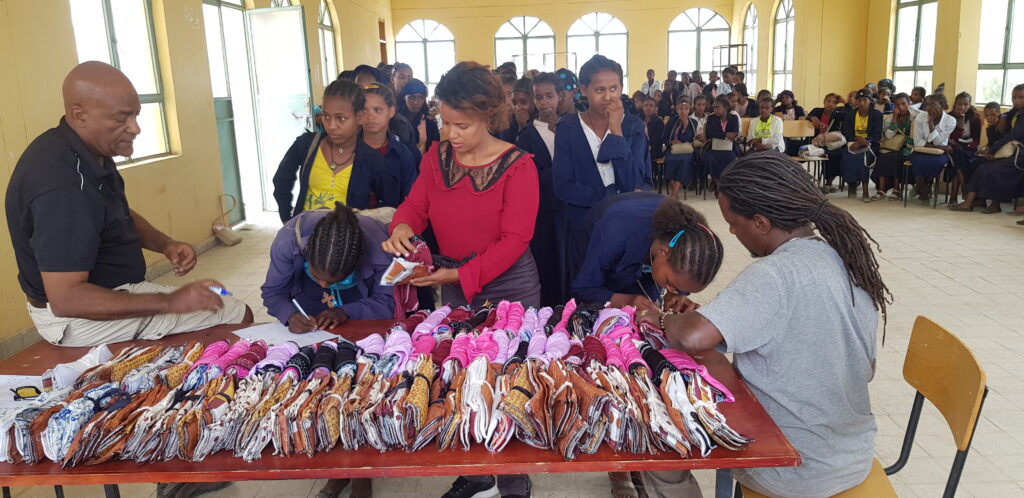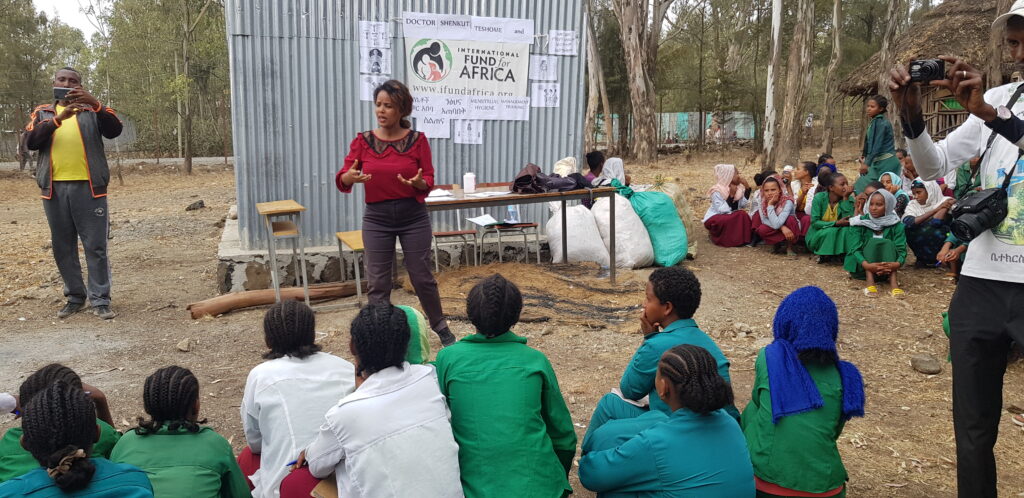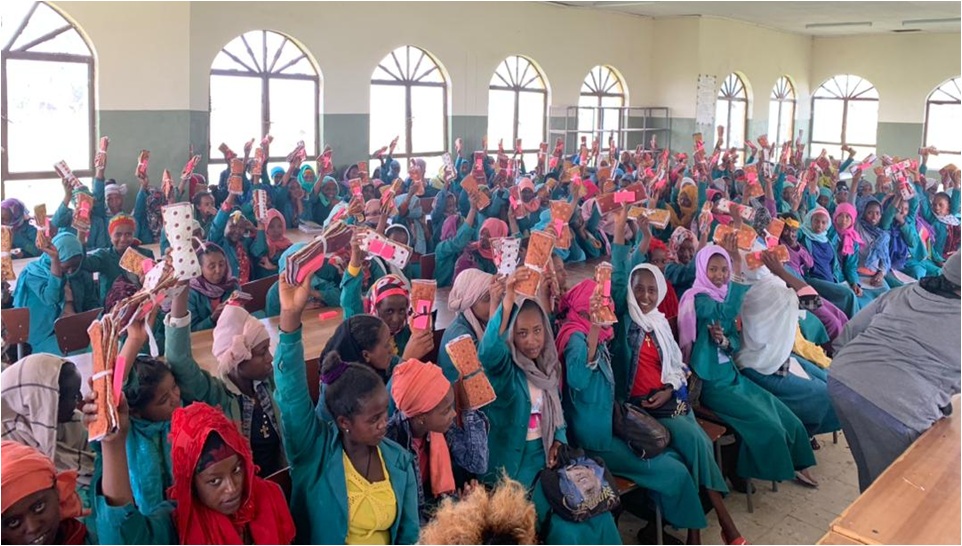
Water, Sanitation and Hygiene (WASH) is the collective term for various interrelated public health issues. Since 2015, IFA has implemented a School Menstrual Hygiene and Management Project (SMHMP) and provided safe water and improved sanitary facilities in the schools within which they are working.
Girls in Ethiopia face many challenges, one being menstruation management due to inadequate access to water, sanitation facilities, hygienic materials and basic knowledge in anatomy, puberty, menstruation and hygiene. During menstruation girls’ attendance at school is often low due to fear of sudden menstrual leakage when they are not using proper sanitary napkins, but instead old rags. Such unhygienic practices can lead to infections. This results in poor school attendance and academic performance as well as an increase in school dropout.
The main objectives of the SMHMP is to promote better understanding of girls’ menstrual challenges, to increase the percentage of girls hygienically using reusable cloth napkins by providing them with MHM kits that contain 5 reusable sanitary pad, soap , underwear and wash cloth. The aim is to reach 1,500 rural school girls per year, thus reducing menstruation-related absenteeism and improving retention and educational performance.
Another issue that impacts on girls attending school during menstruation is the poor quality of sanitary facilities such as toilets and hand washing facilities. As funds permit, IFA has improved the sanitary facilities and the supply of water in the schools where the SSHNP is being implemented. In 4 urban schools IFA has installed hand washing facilities and water tanks to provide clean water. In addition, two septic tanks have been installed in two schools.


WASH in schools is also important for health and well-being. The quality of sanitation facilities in schools can impact attendance rates especially of girls, especially once they have started to menstruate. Therefore, there is a need to educate students on health and hygiene promoting activities such as as hand washing and personal hygiene. For girls, it became apparent that there was little understanding about menstruation, and how to manage it in a hygienic manner.
The uptake and demand for MHM services and products is encouraging as we see the exponential impact of what is already done is bearing fruit in rural communities. Some generous concerned citizens have partnered successfully with IFA to provide MHM kits to whole schools and rural towns.
